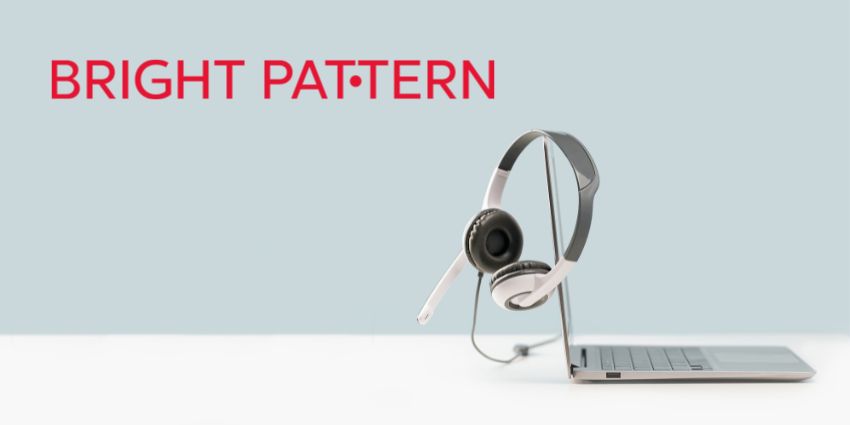A great deal of customer service relies on asking the right questions at the correct times. In order for agents to show an active interest in a customer’s needs and gather additional detail about a concern, they need to ask certain types of questions. “Funnel questions” are a strategy frequently used by customer service agents, salespeople, and HR representatives alike.
Professionals use funnel questions to guide the person they’re speaking with toward delivering the right information. In customer service interactions, funnel questions can enable agents to extract more information on a topic quickly and efficiently, so issues can be addressed faster.
Of course, funnel questions aren’t ideal for every scenario.
Here’s what customer service agents need to know about using funnel questions.
What Are Funnel Questions, and How Do They Work?
Funnel questions are a kind of “probing technique” used by customer service agents and other professionals to access specific pieces of information. Imagine the shape of a funnel; it’s wide at the top before eventually tapering into a much narrower bottom. In the same way, funnel questions start broad or “generic” and become more specific as the conversation progresses.
The funnel technique requires customer service agents to ask questions in a specific order:
Step 1: Open Questions
The first step in the funnel technique involves asking an open question. Open questions allow customers to provide detailed answers. They can’t be addressed with a simple yes or no response. For instance, “How may I help you” is a simple open question that could start a line of funnel questioning. Other examples of open funnel questions might include:
- Can you tell me what you see on your screen?
- What kind of product are you looking for?
- What issue are you trying to solve?
Step 2: Probing Questions
The answers the customer gives to the general, open questions at the top of the funnel will determine what the service agent asks next. For instance, if the customer says they’re having problems with their banking app, the service agent can ask what the problem entails, with an aim of generating more clarity. Probing questions can also help to provide contextual information.
Examples of probing questions might include:
- When did this problem begin?
- What are the specific difficulties you’re facing?
- What happened when you tried to…?
Step 3: Closing Questions/ Summary
At the end of the funnel questioning process, closing questions help the advisor or customer service agent take control of the conversation again. Asking specific questions that require a yes/no answer ensures the agent can determine whether a problem has effectively been resolved.
Closed questions and summary questions can also help to establish the next action steps for the conversation. For instance, the agent could ask, “Are you interested in buying…” or, “Would you like to learn more about..”. Other examples of closing questions might include:
- Do you agree?
- Did this solve your problem?
- Are you happy with this solution?
When Are Funnel Questions Useful?
Funnel questions in customer service can be extremely useful in the right scenario. Typically, these types of questions are used for two main purposes: To keep the conversation with the customer running smoothly and to extract key information.
This questioning method can also be useful during tension-filled customer interactions. If a customer approaches a service agent and they’re already stressed or upset about an issue, a funnel question technique can help to ease them into providing the right information. It guides the flow of the discussion and forces the customer to think about their issue and offer helpful insights rather than just ranting about the fact they’re upset.
Asking guiding questions and “probing” the customer for more information also demonstrates that the agent is taking the customer seriously and digging into the core cause of the issue. This can help to minimize tension.
Are Funnel Questions Always a Good Idea?
Funnel questions aren’t always necessary for customer service. In some cases, it’s not necessary to start a conversation by asking an open question like: “What’s the problem?”
If a customer calls a contact center and presses “3” to be directed to the technical issues team, then you know already that they have a technical problem. If they speak to an IVR system and share core information about their issue, and this data is transferred to the agent, asking them to repeat the same statements will simply cause frustration and reduce customer satisfaction.
Applying funnel questioning techniques too rigidly in a conversation can also rub customers the wrong way. It can make them feel as though the agent is following a script rather than actually responding to their concerns in real-time and paying attention.
For instance, sometimes, an agent may need to confirm information with a customer with a closed question before they’re ready to summarize a call. For instance, if the customer says they can’t log into their account, the agent could ask, “Have you tried using a password reset form?”
There are also instances in customer service where agents need to show empathy before they continue asking any questions and trying to make progress in the discussion. Sometimes it’s better to say, “I understand what you’re saying and can see your frustration,” than to continue probing customers with a line of open or closed questions.
Using Funnel Questions Correctly
Funnel questions can be a helpful resource for customer service. They’re great for launching a conversation and preserving the flow of information. However, customer service agents need to be adaptable enough to determine for themselves when a funnel question strategy will work and when they might need to consider alternatives.
The best customer service agents will know when it’s appropriate to use the funnel technique to access more information from clients and when they should put that strategy on hold.







